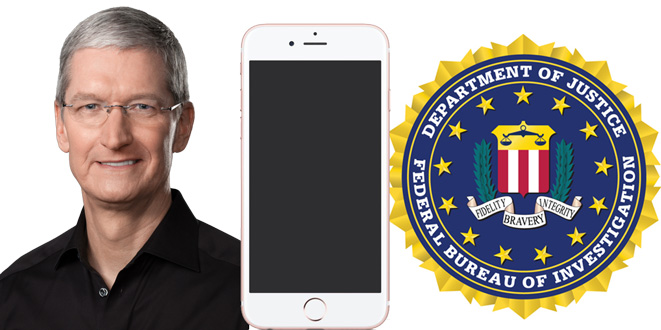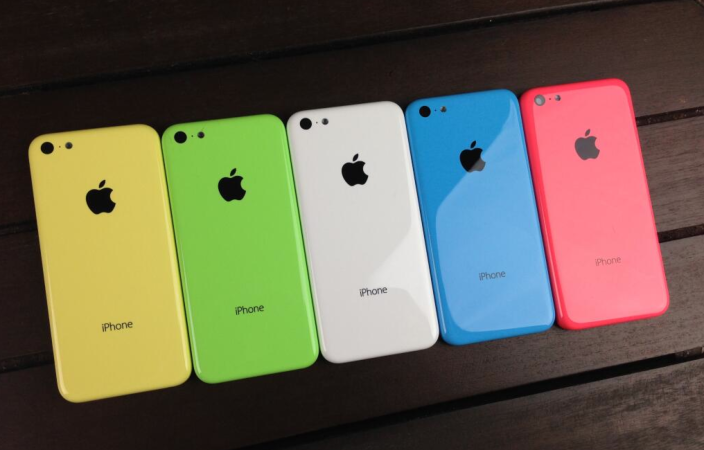
According to legal experts, the ongoing battle between the federal government and Apple Inc. over unlocking the contents of an iPhone is not just about simply helping investigate the San Bernardino terrorist attack. There is more to the story.
“The FBI’s request … represents the next step in the journey to find the Holy Grail of backdoor unencryption, and the next salvo in the ever-escalating battle between law enforcement and tech companies,” said Robert Cattanach, a cybersecurity attorney and former Department of Justice special counsel.
The issue between the Silicon Valley and the federal government has been bubbling for quite some time now and such a confrontation is expected to be the defining case.

According to the chief strategy officer at the network security firm Twistlock, Chenxi Wang, this case could be the deciding factor in establishing a balance between the “privacy and civil liberty against government data access.“.
“If Apple succeeds in fighting the court order, it will set up a high barrier for the FBI and the other government groups to access citizen data from now on,” Wang said. “This will absolutely have a ripple effect. Apple is now viewed as the flag bearer for protecting citizen data, and if they succeed, there will be a flood of other companies following suit.“.
For those of you who have been following the case, but are not aware of why there is so much hype, here are the basics.
First of all starting with the reason of the dispute. In Riverside, a U.S. judge had ordered Apple on Tuesday to help with a key part of the San Bernardino terror probe by developing software to hack into one of its own devices, an iPhone 5c, used by gunman Syed Rizwan Farook, at FBI’s request. The shootout was carried out by Farook and his wife in which 14 people were killed and 22 others were wounded before the Police was able to control the situation and gun down the duo.
The main reason why Apple is opposing this order has been described by Tim Cook, CEO Apple that if they agree to this, there will be a dangerous precedent and a backdoor will be created to its own security systems, that could ultimately compromise the security of billions of customers.
“Up to this point, we have done everything that is both within our power and within the law to help them,” Cook wrote in a letter published on the company’s website. “But now the U.S. government has asked us for something we simply do not have, and something we consider too dangerous to create.”
So, coming to the next question, what will happen next, the company will file an opposition to the court order.
What does the government have to say about all this?
FBI is giving the argument that Farook had disabled, intentionally, the iCloud backup function six weeks before the Dec. 2 terror attack at the Inland Regional Center. They further added that the data for that time could be linked to the shootings and may give leads regarding the movements of the couple and also others who may be involved in the activities.
Investigators have been able to extract some data from the device, as far as the previous backups are concerned and companies are known to comply with such requests by the government, as this doesn’t involve providing the government with access to company servers or altering the software. The San Bernardino County Department of Health, which employed Farook, actually owned the device and gave the FBI permission to search it, according to court filings.

The court has ordered Apple to provide the FBI with a “recovery bundle,” a file that would reboot Farook’s device while disabling the auto-erase feature that would normally be activated after 10 incorrect log-in attempts. This would give FBI the chance to try and guess the password without the danger of losing all the data.
What is the law that is Apple is up against?
In seeking this week’s court order, the U.S. attorney’s office cited the All Writs Act of 1789, a rarely used law that allows judges to issue orders they deem necessary and appropriate. But Apple’s argument that the government is overreaching has already received a favorable reception in at least one court.
Last year, a similar confrontation had taken place when a U.S. magistrate in Brooklyn, N.Y., denied a government request to obtain a suspect’s iPhone data in a drug conspiracy case. The denial was due to the fact that All Writs Acts might not provide enough legal foundation for such an order.
At present, The Brooklyn magistrate hasn’t issued a final order, but Apple told the court in a filing last week that it would like a decision because it has “been advised that the government intends to continue to invoke the All Writs Act … to require Apple to assist in bypassing the security of other Apple devices in the government’s possession.“.
We personally think that a common ground will be reached for this case and Apple will have to help FBI and, in turn, the government in some way. It is a matter of National Security, so, the government’s claim is valid, however, Apple is also putting through a valid point as if they do such a thing, totalitarian governments such as China will demand the company use a similar tool to open phones of opposition leaders and human rights activists.










